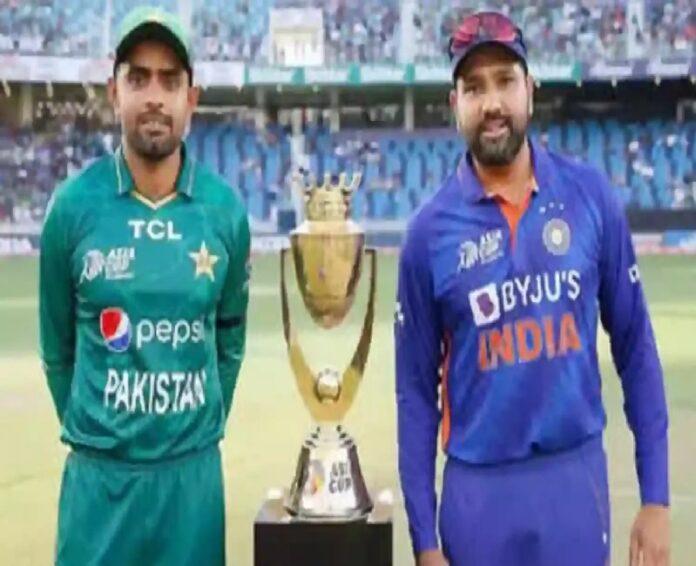India is the defending champion of the ICC ODI World Cup, but their preparations for the 2023 tournament have been far from smooth. There has been a lot of chopping and changing in the team, with the batting order in particular a cause for concern.
The number 4 spot has been a problem for India for a while now, and it has not been solved in the lead-up to the World Cup. Several players have been tried out in that position, but none of them have really cemented their place. This uncertainty is a big worry for the team management.
Another issue is the lack of experience in the batting line-up. Rohit Sharma and Virat Kohli are the only two batsmen in the team with a proven track record in ODI cricket. The rest of the batsmen are relatively inexperienced, and it remains to be seen if they will be able to handle the pressure of a World Cup.
The bowling department looks a bit more settled, but there are still some concerns. Jasprit Bumrah is the world’s best bowler in ODI cricket, but he will need support from the other bowlers. Mohammed Shami has been inconsistent, and the team needs another bowler who can take wickets in the middle overs.
Overall, India’s preparations for the World Cup have been muddled. There are still a lot of questions about the team, and it remains to be seen if they will be able to defend their title. Here are some of the specific criticisms that have been leveled at India’s approach to the World Cup: The team has been too experimental, trying out too many different players and combinations.
There has been a lack of clarity about the first-choice playing XI. The batting order has been unstable, with no clear number 4 batsman. The team lacks experience in ODI cricket. The bowling department is not as strong as it could be. The team management will need to do a lot of soul-searching in the next few months if they want to win the World Cup. They need to find a settled batting order and a balanced bowling attack.
They also need to give the players some confidence by giving them a consistent run in the team. The World Cup starts in India in about seven weeks. That there is cricketing talent aplenty in this country is well known. Brian Lara for one has spoken in glowing terms about this aspect. He is of the view that the Indian cricket landscape is bursting at the seams with young talent and feels that “the country can field not just a second XI but even a third XI at the moment.’’ The legendary West Indian has a point.
When one looks at the composition of the Indian squads across formats it does seem to be bursting with prodigiously gifted young players. The current ICC rankings also would appear to cement India’s exalted status in world cricket – No 1 in Tests, No 3 in ODIs, No 1 in T-20s, easily the best overall record among the ranked teams. World Cup And yet there is this disturbing fact, India have not won an ICC trophy since lifting the Champions Trophy in 2013.
Before that there were two 50-over World Cup triumphs in 1983 and 2011 and a T-20 World Cup victory in 2007. There is no denying the fact that however well a team may perform at the international level an ICC Trophy is something special. Just the fact that these three wins are remembered most fondly is proof of this. Since then India has made the title clash of the ICC Test Championship on both occasions it has been held but has faltered at this final hurdle.
Right now however the spotlight is on the World Cup which starts in India in about seven weeks time. Before that there is the Asia Cup to be played in Sri Lanka and Pakistan from August 30 to September 17. So preparations should be underway in earnest for both competitions. While a victory in the World Cup is the ultimate aim, an admirable showing in the Asia Cup will be a confidence booster.
After all, five of the six teams in the Asia Cup will be taking part in the World Cup. It’s fine to talk about an embarrassment of riches as far as talent is concerned but what about preparation? Even the strongest of sides adopt a thoroughly methodical and professional approach when it comes to team selection and preparation for a mega competition like the World Cup so what has India done so far towards achieving this goal? To be candid if there are concerns in this regard it appears to be justified.
The preparation has been haphazard, and there are several questions about the selection of the squad. All eyes will be on the Ajit Agarkar led selection committee for picking the correct team with the ideal blend of youth and experience and the right balance when it comes to batting and bowling. There was a time when bits and pieces players were considered vital for ODIs and while this is still true their value has diminished in recent times.
Like in Tests there are specialist batsmen and bowlers with perhaps the one utility player thrown in. It is all nice to hear talk about experimentation and keeping long term plans in mind as Rahul Dravid has been harping on of late but in the ultimate analysis there is nothing like victory to give a team confidence even if it is against a lowly ranked side like West Indies. The Indian coach kept chopping and changing both the ODI and T-20 sides that gave the visiting squad an unsettled look about it.
The result was that West Indies were able to win an ODI in the three-match series and notch up a totally unexpected victory in the five match T-20 contest. This is totally unacceptable when one considers that the West Indies are ranked No 10 in ODIs and No 7 in the T-20 format. Plainly put, India were vastly superior and should have won both the contests in a canter even if they were experimenting.
Great players need not necessarily make great coaches and Dravid is another in this long line. He was never assertive as a captain allowing Greg Chappell as coach to take over Indian cricket. When it comes to matters of strategy and tactics as a coach his record leaves much to be desired. The selection of the squad made by the team management was the sole cause for this.
Either there was a batsman short or a bowler short, either there was a pacemen less, or an extra spinner. Very few got two or three matches at a stretch and the result invariably means a player short on confidence. When he is not sure of his place in the side, how can he give off his best? Striking a hopeful note Rohit Sharma has said that India are “desperate” to break their ICC trophy drought in the World Cup and are armed with “inner confidence” and “self-belief” to win the title. ` “I have never won a (50 overs) World Cup.
It’s a dream to win a World Cup and for me there is nothing like winning it in your own country,” he said a few days ago, adding, “You don’t get World Cups on a platter, you have to really work hard and that is what we hope to do.”
Despite the captain’s positive outlook with the clock ticking fast India have a few kinks to work out, even as the team’s build up to the tournament has been marred by criticism, with experts and fans questioning India’s muddled approach to the mega competition. It is still early days, but India will need to improve their performances in the upcoming ODI series if they want to be considered as serious contenders for the World Cup.■ #hydnews #khabarlive







